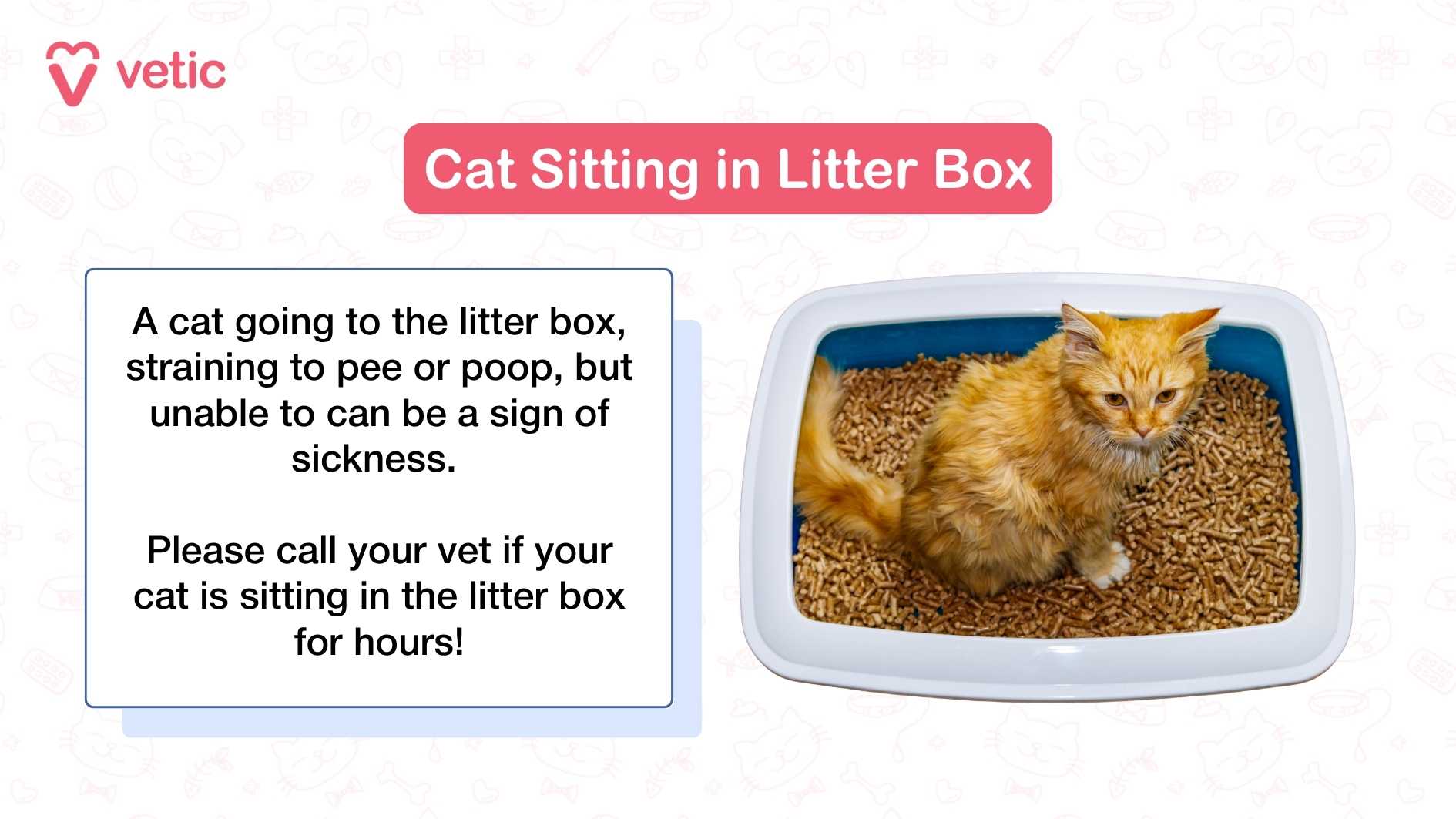Are you frustrated with your cat pooping outside the litter box? You’re not alone.
Many cat owners face this puzzling problem, and it can be both confusing and messy. But don’t worry; understanding why your feline friend is doing this is the first step to solving the issue. We’ll explore the common reasons behind this behavior and what you can do to fix it.
You’ll discover helpful insights that can make both you and your cat happier. So, if you’re ready to get to the bottom of this litter box mystery, keep reading!

Credit: www.reddit.com
Common Reasons Cats Avoid Litter Boxes
Cats usually use their litter boxes without problems. But sometimes, they avoid them. Understanding why cats poop outside the litter box helps solve the issue fast. Many common reasons cause this behavior. Knowing these reasons keeps your cat happy and your home clean.
Medical Issues
Health problems often cause litter box avoidance. Urinary tract infections, constipation, or pain can make cats avoid the box. They may associate the box with discomfort. A visit to the vet is important to rule out medical causes.
Litter Box Cleanliness
Cats prefer a clean litter box. Dirty boxes make them uncomfortable. Cats dislike strong smells or clumps of waste. Cleaning the box daily encourages proper use. A clean box feels fresh and inviting to cats.
Litter Type Preferences
Not all cats like the same litter. Some prefer fine, soft textures. Others avoid scented or clumping litters. Experimenting with different litters helps find the right one. Matching the litter type to your cat’s taste increases box use.
Box Location Problems
Location matters for litter boxes. Cats want privacy and quiet. Boxes near noisy appliances or busy areas scare them off. Avoid placing the box near food or water dishes. A calm, easy-to-access spot encourages use.
Stress And Anxiety
Stress affects a cat’s habits. Changes in routine, new pets, or loud noises cause anxiety. Stressed cats may avoid the litter box. Providing a safe environment and routine reduces stress. Calm cats use the box regularly.
Territorial Marking
Cats mark territory to feel secure. Pooping outside the box can be a sign of marking. This often happens with new pets or changes in the home. Understanding this behavior helps manage and reduce marking.
Health Problems Linked To Inappropriate Pooping
Noticing your cat pooping outside the litter box can be frustrating and confusing. One important reason behind this behavior could be health problems. Understanding these medical issues helps you act quickly to keep your cat comfortable and your home clean.
Urinary Tract Infections
Urinary tract infections (UTIs) are a common cause of litter box avoidance. The discomfort and pain from a UTI can make your cat associate the litter box with pain. Your cat might choose softer surfaces or unusual spots to avoid that discomfort.
If your cat suddenly starts pooping elsewhere, check for signs like frequent urination, blood in urine, or vocalizing while using the box. Have your vet test for UTIs—they are treatable, and catching them early can prevent more serious issues.
Digestive Disorders
Digestive problems can disrupt your cat’s bathroom habits. Conditions like inflammatory bowel disease or food allergies cause diarrhea, constipation, or urgency. These symptoms can make it hard for your cat to reach the litter box in time.
Watch for signs such as weight loss, vomiting, or changes in appetite alongside the pooping issues. Adjusting diet or medication under veterinary guidance can help your cat regain control and confidence in using the litter box.
Arthritis And Mobility Issues
Older cats or those with arthritis might find entering or moving around the litter box painful. If the box has high sides, your cat may avoid it to prevent discomfort. You might notice your cat pooping in accessible locations instead.
Consider a litter box with lower sides or a ramp to ease access. Observing your cat’s movements can reveal if arthritis is the culprit, and a vet can suggest treatments to improve mobility and quality of life.
Improving Litter Box Appeal
Improving the appeal of a litter box can encourage cats to use it consistently. Cats are picky about their bathroom spots. Making the litter box inviting helps reduce accidents outside it.
Choosing The Right Litter
Select litter that feels soft and natural under your cat’s paws. Unscented, clumping litter often works best for comfort and odor control. Avoid strong fragrances that may repel your cat. Some cats prefer fine-grain litter because it mimics sand or soil.
Optimal Box Placement
Place the litter box in a quiet, low-traffic area. Cats like privacy when they use the box. Avoid spots near loud appliances or busy hallways. Ensure easy access without obstacles. Having multiple boxes in different locations helps multi-cat households.
Maintaining Cleanliness
Clean the litter box daily to keep it fresh. Scoop out waste promptly to remove odors. Wash the box with mild soap weekly. Dirty boxes discourage cats from using them. A clean environment supports good litter box habits.

Credit: vetic.in
Behavioral Solutions For Litter Box Issues
Behavioral issues often cause cats to poop outside their litter boxes. Understanding and addressing these behaviors can help fix the problem. Behavioral solutions focus on changing the cat’s environment and habits to encourage proper litter box use.
Reducing Stress Triggers
Stress can make cats avoid their litter boxes. Loud noises, new pets, or changes in the home can upset them. Create a calm space for your cat. Provide quiet, safe areas away from busy rooms. Keep routines consistent to help your cat feel secure. Using calming sprays or diffusers can also reduce anxiety.
Positive Reinforcement Techniques
Reward your cat for using the litter box. Praise with gentle words and petting right after they go. Offer treats to encourage good habits. Avoid punishment; it can increase fear and worsen the problem. Keep the litter box clean to make it inviting. Positive experiences help your cat learn the right behavior faster.
Addressing Territorial Behavior
Cats are territorial animals. New cats or changes in the household can cause marking outside the box. Provide multiple litter boxes in different areas. This reduces competition and stress. Use pheromone sprays to ease tension between cats. Keep each cat’s feeding and resting areas separate. Respecting their space helps prevent territorial disputes.
When To Consult A Veterinarian
Knowing when to consult a veterinarian is important if your cat poops outside the litter box. Sometimes, this behavior signals a health problem. Other times, it may be a sign of stress or changes in their environment. Acting quickly helps your cat stay healthy and comfortable.
Signs Of Medical Concerns
Watch for signs that may show your cat is sick. These include:
- Straining or pain during bowel movements
- Blood or mucus in the stool
- Frequent attempts to poop without success
- Sudden changes in appetite or drinking habits
- Lethargy or unusual hiding
Such symptoms need prompt veterinary attention. Early treatment can prevent serious issues.
Persistent Litter Box Avoidance
If your cat keeps avoiding the litter box despite no obvious medical signs, a vet visit is still wise. Persistent avoidance may hide hidden health issues or stress factors. Your vet can perform tests to rule out infections, digestive problems, or urinary tract issues.
Sometimes, behavior problems need professional advice. A vet may suggest changes or treatments to help your cat feel safe using the litter box again.

Credit: www.reddit.com
Frequently Asked Questions
Why Does My Cat Suddenly Poop Outside Litter Box?
Sudden changes in behavior often signal stress, illness, or litter box issues. Cats may avoid the box if it’s dirty, uncomfortable, or in a noisy spot. Health problems like infections or constipation can also cause this behavior. Consulting a vet and ensuring a clean, accessible box helps.
Can Litter Box Cleanliness Affect Cat’s Bathroom Habits?
Yes, cats are very clean animals. A dirty or smelly litter box can make them avoid it. Cleaning the box daily and using unscented, clumping litter encourages proper use. A clean environment reduces stress and promotes healthy bathroom habits in cats.
Does Cat’s Health Impact Litter Box Usage?
Health issues like urinary tract infections, constipation, or arthritis can cause cats to poop outside the litter box. Pain or discomfort may make reaching or using the box difficult. Regular vet check-ups help detect problems early and maintain your cat’s health and comfort.
How Does Litter Box Location Influence Cat’s Behavior?
Cats prefer quiet, private, and easily accessible litter box locations. A noisy or high-traffic area can cause avoidance. Placing multiple boxes in different spots, especially for multi-cat households, encourages use and reduces territorial disputes or stress-related accidents.
Conclusion
Cats may poop outside the litter box for many reasons. Stress, illness, or a dirty box can cause this behavior. Changing the type of litter or box location helps sometimes. Watching your cat closely can reveal clues. Quick action prevents habits from forming.
Patience and care support your cat’s comfort. Understanding your cat’s needs is key to solving the problem. Small changes often make a big difference. Keep trying until your cat feels safe and happy.

